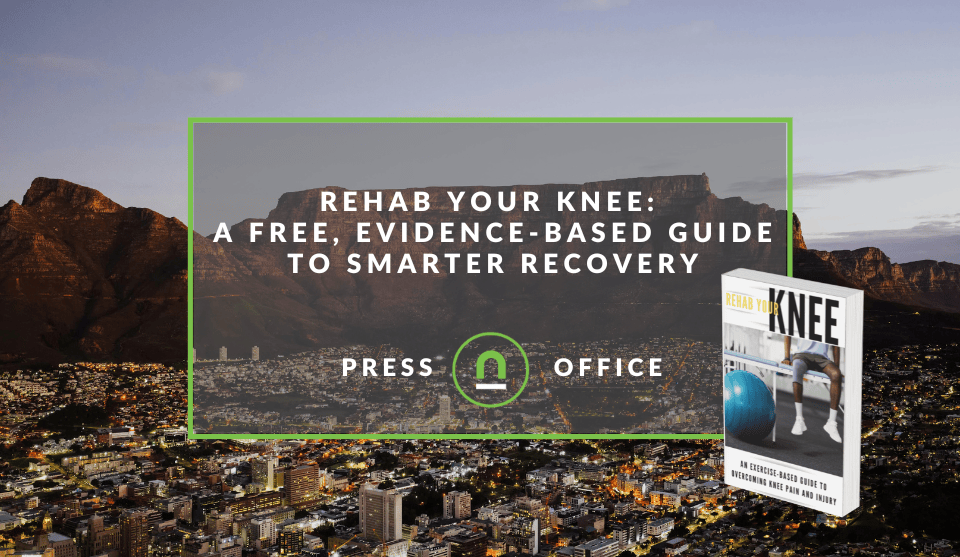Recent posts

Athletes
Peptide Use for Muay Thai Training
23 February 2026

Money Talks
A Guide To Mobile Trading Apps for South Africans
19 February 2026

Press Releases
Rehab Your Knee: A Free, Evidence-Based Guide to Smarter Recovery
12 February 2026

Money Talks
XRP vs. Stablecoins: Which Is Better for Cross-Border Payments in 2026?
28 January 2026
Popular posts
Extravaganza
Trending Music Hashtags To Get Your Posts Noticed
24 August 2018
Geek Chic
How To Fix iPhone/iPad Only Charging In Certain Positions
05 July 2020
Extravaganza
Trending Wedding Hashtags To Get Your Posts Noticed
18 September 2018
Money Talks
How To Find Coupons & Vouchers Online In South Africa
28 March 2019
How To Research A Potential Neighbourhood
22 December 2020 | 0 comments | Posted by Diane Seka in Constructive Criticism
Whether you are in the market for a new home or only looking to rent, choosing a neighbourhood is one of the best things you can do. That’s because the neighbourhood can make or break your experience of living in any given place.
For instance, if you value your peace and quiet, the last thing you want is to find yourself in the middle of a noisy neighbourhood. Similarly, if you have a family, you don’t want to raise your kids in an area teeming with drug users and where all kinds of social vices abound.
But even good neighbourhoods can sometimes be made untenable by factors like crime rate or even something as overlooked as the culture of the place – unfriendly and unwelcoming people, for example (not ideal if you value community service), nosy neighbours, etc.
Considering your next move
When moving to a new home, a lot of people are preoccupied with other things – finding an ideal apartment or house, for example, searching for reputable movers to execute the move, what to sell, donate, or move with to the new home, and so on.
But don’t overlook the importance of researching a neighbourhood before you move in. Here are a few considerations you should think about to be sure you’re making a smart decision before signing on a lease or making an offer on a home.
1. Determine housing prices
Knowing how much it will cost to put a roof over your head (literally speaking) is probably the first thing you want to know about your neighbourhood. Take advantage of both digital and analogue resources such as property listing websites, private listings on real estate websites, physical newspaper listings and local classified ad sites.
This interactive chart from Zillow can prove handy in that regard. It can give you home values and rental prices over the past decade.
2. Check the cost of living
But housing prices do not tell the whole story. The cost of living – which varies depending on region – can make life uncomfortable for you if it is too high.
No one wants to be caught in a financial rat race whereby you’re forced to make lifestyle changes to reduce the strain on your pocket. This is why you should factor in the cost of commodities like food, energy, health care etc. as the value of the dollar will vary depending on the place.
3. Know what to expect in taxes
This is another critical financial-related factor to consider when moving to a new neighbourhood, but one that many people overlook.
The amount you fork out in income taxes can really add up over time. It also never hurts to know what to expect in terms of sales and property taxes for your new home, never mind state taxes on gasoline, inheritance, cigarettes and what-not.
4. Research the weather
The weather may seem inconsequential (unless you’re a retiree), but it does matter. For example, if you’re one of those who find it hard to function in scorching weather, states like Florida and Louisiana may not be the best places to find a neighbourhood to settle in. Unless, of course, you don’t have an option in the matter.
Similarly, anyone who suffers from arthritis or difficulties in walking may not find cold areas with ice and heavy snowfall the most ideal. That aside, being privy to the kind of weather a place experiences can aid in deciding on the type of insurance to take on your home and other assets.
5. Look at local school districts
School districts can help give you a feel for local communities and give you an idea of what sort of community you’re looking at moving into next. You don’t necessarily have to have a school-going child.
A good source of this data (taxes included) is the National Center for Education Statistics (NCES) whose SDDS (School Districts Demographics System) provides a general view of the community’s makeup at a macro level. It can give you data on race, economic and social demographics.
6. Consider the crime rate
Checking the local crime rate is one way to get a general sense of your new city as it gives you an idea of what you’re up for when protecting yourself and your family.
For example, in The USA, each year, the FBI releases four publications that shed light into the general crime rate of a given area. You can also check the social media accounts of the local police department (most have them these days).
If your area does not have crime statistics readily available, then it would be a good idea to speak to the local police department, local newspapers or neighbourhood watch and community Facebook groups to source some opinions.
7. Don’t forget your transport options
It is essential to know the transportation options available at your disposal, even if you own a car. Every public transport service runs a website (or app) that can be a good source of this information.
If you are looking at different areas at once, Google Maps is another excellent resource. All you need to do is zoom in until you see small blue icons that resemble the front of a bus. These can direct you to that area’s specific transport options once you click on them.
8. Evaluate the job market
Looking at the job market data is an excellent way to gauge how the area is doing economically. No matter where you’re at in your life at the moment – job seeker, employed, business owner, or retiree – this should be an essential element of your research. Living close to a vibrant economy makes generating an income easier if you're looking for full time or part-time work.
Regarding the source of the data, the local Chamber of Commerce, classified ad sites, job placement websites, and local newspapers are the right places to look.
Big purchases should come with the conviction
For many of us buying a home will be the biggest purchase we ever make and when you're leveraging either your savings or future income to secure a property, you need to be committed to the home. Make sure you know every one of the pro and cons of the areas you are considering and weigh up which options are most important to you before deciding on where to settle down.
Tell us your story
Would you like to write for nichemarket just like Diane has? Find out how to submit a guest post, and when you're ready, you can contact us.
Are you looking to promote your business?
South African real estate agencies, construction or renovation businesses can create your free business listing on nichemarket. The more information you provide about your business, the easier it will be for your customers to find you online.
Registering with nichemarket is easy; all you will need to do is head over to our sign up form and follow the instructions. If you require a more detailed guide on how to create your profile or your listing, then we highly recommend you check out the following articles.
Recommended reading
If you enjoyed this post and have time to spare, why not check out these related posts and dive deeper down the rabbit hole that is real estate.
- New Home Inspection Checklist
- How To Start House Flipping
- Why South Africans Are Buying A Property in Malta
- Should You Buy or Rent a Condo?
- A Foreigners Guide to Buying a Thailand Property
- How To Buy Property if You Are A Non-Filipino
- How Do You Know A Property is Priced too High?
Tags: Real Estate, Guest Post
You might also like
80% of Gen-Zers Would Marry an AI
19 January 2026
Posted by Steph M in Press Releases
Experts reveal why AI relationships are getting serious, and the reasons why 4 in 5 young people are open to marrying ai as human dating becomes too ...
Read moreXRP vs. Stablecoins: Which Is Better for Cross-Border Payments in 2026?
28 January 2026
Posted by Pham Van in Money Talks
XRP or Stablecoins? Discover which wins for cross-border payments in 2026. Compare speed, costs, and stability in our latest global finance guide.
Read more{{comment.sUserName}}
{{comment.iDayLastEdit}} day ago
{{comment.iDayLastEdit}} days ago
 {{blogcategory.sCategoryName}}
{{blogcategory.sCategoryName}}

